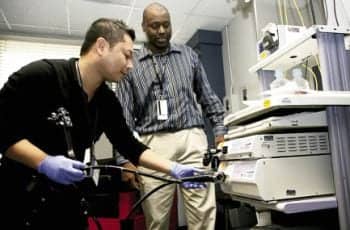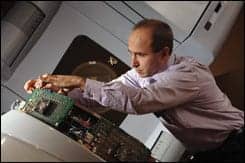 |
| Julie Kirst, Editor |
In a field that focuses on healing, one would think that those involved in it would be ethical in all their dealings, but big business and the potential for big money lead many astray. I’ve recently received notices from the FDA and other organizations announcing a revision of their policies for the purpose of guaranteeing ethical practices.
In early August, the FDA announced its accelerated efforts to prevent “noncompliant investigators and others from participating in new product development.” The notice stated that the FDA had enhanced its procedures for debarment and disqualification to better ensure the safety and effectiveness of medical products.
Currently, the FDA has the power to disqualify researchers who conduct clinical tests of new devices if they have not followed the rules. It can also disqualify clinical investigators who manipulate data to inaccurately report study findings.
Under pressure from Congress, who didn’t believe the FDA was using its debarment and disqualification authority effectively, the FDA reviewed its processes and concluded it should improve its procedures to safeguard the drug and device development processes. Increased staffing and centralized coordination resulted from the decision. According to the release, the number of debarment actions has risen considerably while the length of time for resolving both disqualification and debarment actions has been significantly reduced.
AdvaMed, a trade association for the medical device industry, recently approved a significant update to its code of ethics in relation to interactions with health care professionals. The company, whose members produce 90% of the medical devices, diagnostic products, and health information systems purchased in the United States, and 50% of those sold around the world, created more transparency by explicitly clarifying what constitutes appropriate and inappropriate activity between health care professionals and representatives of AdvaMed member companies.
RAJ Devices, a regulatory affairs journal published by Informa that covers the medical technology industry, published an article about AdvaMed’s enhanced code. In the release, Andrew Van Haute, associate general counsel at AdvaMed, explained that medical professionals often work in tandem with companies to invent and improve upon medical devices. Both parties may collaborate to design effective clinical trials of devices, or companies may work closely with health care professionals in the field to make sure the product is used properly. Conflicts of interest can arise, and AdvaMed’s new code of ethics prohibits gifts of any type, regardless of value, and offers guidelines for companies to enter into royalty arrangements with health care professionals in exchange for substantial contributions that improve medical technologies.
In my experience, I have found that while there is a specific definition about what is considered ethical, some step over the line on issues they deem unimportant, and this is where unintentional unethical behavior happens. Will the enhanced efforts discussed above keep OEMs and health care professionals on the straight and narrow? Have you come across situations like this? I’m interested in your thoughts and experiences, so I hope you’ll blog about it with us and share your ideas on how to cope with unethical behavior.
Julie Kirst





